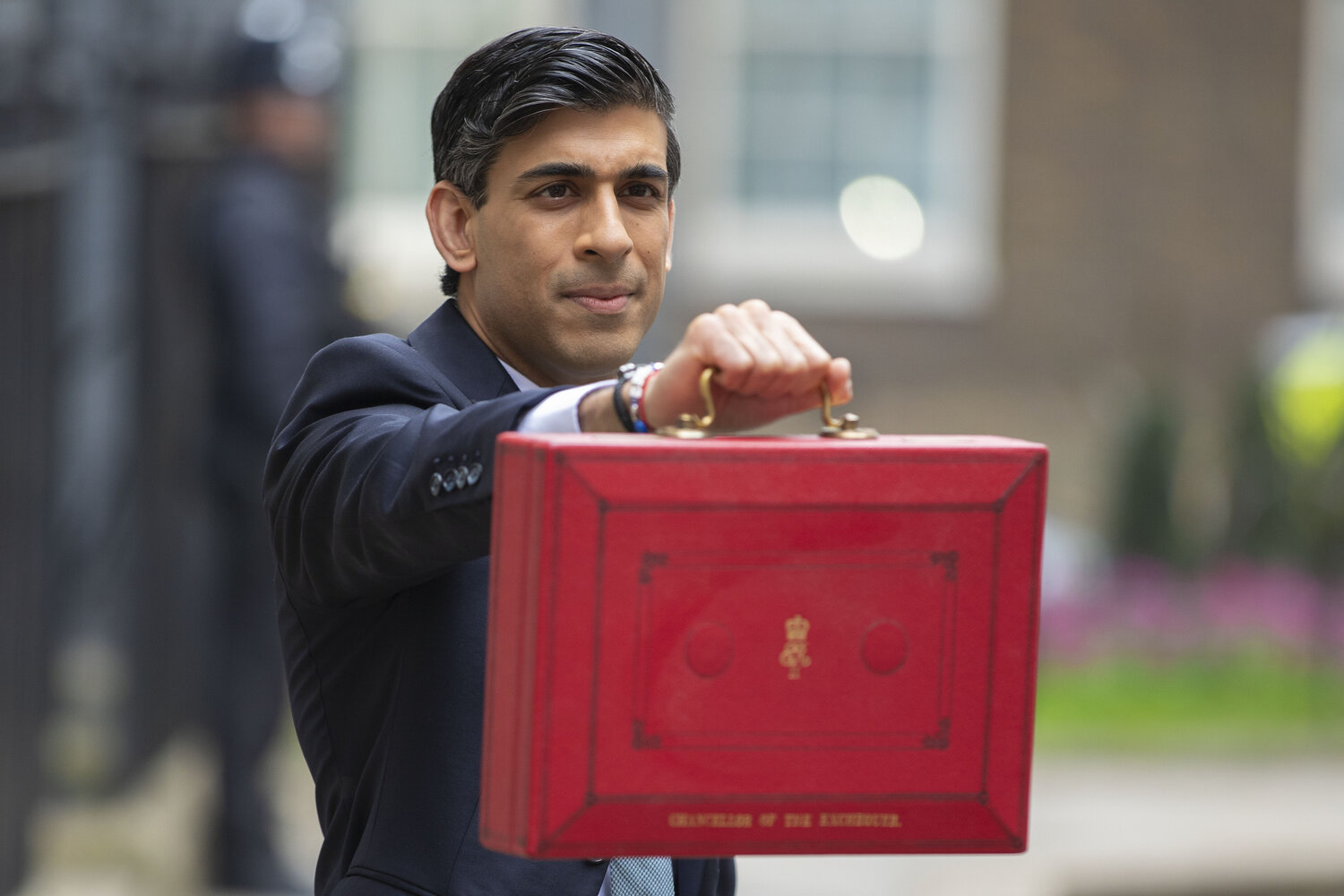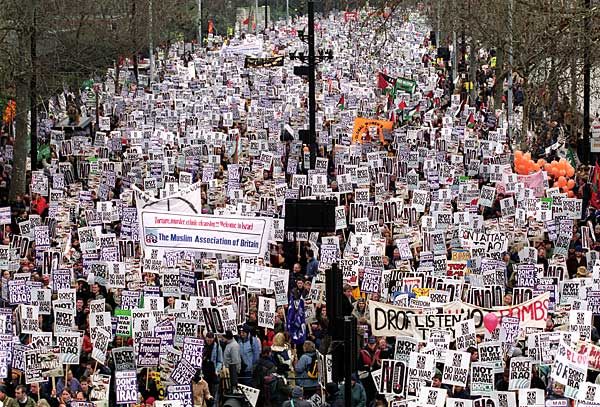
The Tories Want to Build a British State for the Post-brexit Era, Who Will Stop Them? | SC Cook
The Chancellor leaving No.11 to deliver the budget, picture: HM Treasury
“THE BUDGET PROVED A TREND OF BORIS JOHNSON’S GOVERNMENT ATTACKING THE DEVOLUTION SETTLEMENT AS HE TRIES TO BUILD HIS PROJECT OF POST-BREXIT BRITAIN.”
Whether it’s the creation of low tax, low regulation ‘Free Ports’ in Wales, new infrastructure projects, £740millon of extra cash, the M4 bypass standoff or the dismissal of Welsh Government in the levelling up fund, the message from the Budget is clear: Boris Johnson and Rishi Sunak are on a mission to renew the British state and attack devolution.
This is central to their vision of a new phase of British capitalism, where they hope to oversee a period of political stability, maintain their class power and make post-Brexit Britain a competitive and viable long term project.
The question is, who can stop them?
Johnson’s project for Post-Brexit Britain.
Boris Johnson wants to reshape the constitutional settlement and shore up the British state after a period of turmoil.
The question of Brexit is settled for now, the threat of a Corbyn government has been defeated and the vaccine points to the end of lockdown. Even the most immediate danger to the state, the prospect of Scottish Independence, is not as close as some political commentators like to make out.
In this context, Johnson is now seeking to expand his majority and political position in both Wales and Scotland. Having taken large swathes of the post-industrial North Wales in 2019, it’s only logical that he would now look to the South, where his party has traditionally been heavily rejected. The SNP in Scotland presents a far bigger challenge, but the Tories still believe they can make inroads.
This is not just about extending Tory power, but is central to his vision of the state post Brexit.
Outside of the EU, British capital is more exposed and depends on the viability and integrity of the British state. This is particularly important for British capital’s ability to compete in a world dominated by the super powers of the US, China and the EU. The state needs to maintain some influence over global foreign policy as well as being an important ally of America. At the same time, its economy and workforce must be competitive.
This mission is put at risk by the push for independence, or even the quest for greater divergence, in devolved nations. In order to stop this from happening, Johnson is taking a new approach & learning from his predecessor’s mistakes.
Cameron’s government was ultimately reckless for the class it was intended to serve, that of Britain’s ruling elite. It almost destroyed the union in 2014 and took Britain out of the EU.
The British ruling class will be feeling a sense of relief that the last 6 years is over, but will do everything they can to ensure it never happens again.
This will involve using their power – both legal and political – to block the chance of an independence referendum in Scotland and Wales. They’ll take the view that neither government will break the law to hold a vote on secession.
And if the British government does agree to a vote, it will only be if they have maximum confidence that they’ll win it. This is where the other part of Johnson’s strategy comes into play: trying to build popular support for his agenda.
The Tory government are looking to an economic settlement that is different and one they hope is ultimately more stable than the Osbourne and Cameron era.
In reality, the misery will continue and even worsen for millions of working class people: the budget was an attack on the poorest, as shown in income tax rises for low earners, continued attack on local government spending & continued squeeze on public sector pay, among other things.
But there is truth to the idea that Johnson wants to appear different to his predecessors. This was signified most clearly by the announcement of a 6% rise in corporation tax and the lack of emphasis on major spending cuts to pay off the deficit in the immediate term.
In contrast, George Osbourne cut the corporate tax rate by 4% in his first budget and every year thereafter, as well as embarking on an historic attack on the public sector and welfare spending.
Johnson is keen to at least try and signal a break from the past, and has previously contrasted his government’s creation of furlough to the lack of support offered to workers by Gordon Brown after the financial crash of 2008.
This is of course part of a global trend, but Johnson wants people to think he has a grander vision of national renewal in the context of Brexit.
He embarks on this political project from a position of relative strength, riding high in the polls. We should remind ourselves that he is feeling confident despite the horrendous Covid death toll, thanks in no small part because of UK Labour’s woeful opposition, which now sees Keir Starmer trail a humiliating 13 points behind the Tories.
The opposition to Johnson
Mark Drakeford certainly understands the threat, and said recently he felt the United Kingdom “as it is, is over” and called for a new constitutional settlement.
Drakeford is walking a tightrope however, pushed into attacking the union in the face of Tory aggression whilst also being opposed to the idea of independence. The problem is he leads a country in crisis when it comes to poverty and regional inequality. There are several areas of Wales where unemployment is rampant, and the amount of jobs on offer are nowhere near the size of the population. Those jobs which do exist are often low paid and exploitative.
I was struck when I visited a small town at the heads of the Valleys recently and asked people about job opportunities in the area. They laughed at me, and said the only glimmer of hope was the construction of a drive through fast food outlet near Ebbw Vale.
In these places, people are not necessarily going to care about whether or not Boris Johnson threatens devolution, they will care more about the potential creation of jobs and infrastructure investment.
The Prime Minister is betting on the fact that he will win the war of public opinion if Welsh Government tries to get in his way over investment projects and so on. If Johnson is able to define the terms of debate as a battle between jobs or the integrity of devolution, jobs will win.
Plaid Cymru does not offer the kind of radical economic programme that could pull people away from Johnson. The Labour party in Westminster shows no sign of leading effective opposition, and there are no signs of the left taking back control or defining the agenda.
Independence
We then come to the question of Independence, which does contain within it both the possibility of opposing Johnson and offering a different vision for the people of Wales. The most recent poll put support for independence at a staggering 39%. The Tories will have stopped to take notice of this.
But polls are a dangerous drug, and much of the support for Indy is likely to be fairly soft at this stage. Whilst this is still very encouraging for the movement and could well grow, it’s also impossible to say how this support would be affected by a concerted attack from unionists, and especially Johnson.
If the independence movement simply mirrors Mark Drakeford’s response and chooses to make the attack on devolution the central point, rather than focus on the underlying issues of unemployment, poverty, wages, lack of infrastructure, state racism and so on, then it may find people are more easily pulled towards Johnson and the British state.
Equally, by cheerleading Drakeford’s attacks on the union, they may leave themselves open to disappointment when he ultimately sides with the British state over the question of independence.
Working class struggle
Finally there is the left and trade union movement in Wales, which is almost impossible to define as a cohesive bloc as it comprises many different facets, including parts of the independence movement and those opposed to the idea.
Nevertheless, the left can look to the recent success of large scale campaigns that have mobilised thousands of people. The most notable examples here are possibly the effort to stop the closure of Royal Glamorgan A&E last year, which saw working class communities organise on mass across the Rhondda, and the huge Black Lives Matter movement in Wales.
Then there is also the recent defeat of plans to cut jobs at the National Library of Wales and the victorious Unite Taxi campaign, which secured a massive pay deal for Welsh taxi drivers. The recent fight for justice for Mohamud Hassan, coming off the back of the BLM movement, and the free school meals campaign are also recent examples of struggle taking off.
But we should set our sights on Westminster too, and understand that the Tory government is particularly vulnerable as they try to come out of the pandemic and embark on their project of national renewal.
The positive spin around the Budget has quickly dissipated with the news that the government wants NHS workers to get a 1% pay rise. Even though health is devolved, workers understand that UK Government pay deals usually transfer to Wales.
There has been a furious reaction to the insulting pay offer that has translated into support for the idea of a strike by health workers, with an Opinium poll putting support for the idea at a staggering 51%, with 36% opposing.
Writing on this website on Friday, a nurse from South Wales described the bitter anger among NHS workers and called for unions to organise a strike ballot.
The nurse, Rhian Bethell, has been part of an ongoing campaign for a 15% NHS pay rise that saw thousands of health workers protest last summer. It is this mobilisation, very much led by rank and file workers, which has resulted in the Royal College of Nursing calling for a 12.5% wage increase and raising the idea of a strike which is now finding its way into popular consciousness.
At the same time, NHS workers understand their raw industrial power: their role in the vaccine rollout is absolutely critical to the whole economy and the Tory agenda.
This could put Johnson and his would-be successor, Rishi Sunak, in a very difficult position, more so than anything else he currently faces politically. If he is forced to U-turn, or dragged into a major standoff, it could weaken his whole project and encourage other workers in education or social care to push for higher wages too.
It is therefore important that everyone who has an interest in seeing his project fail gets behind the health workers.
Johnson is on the march, and it might be that they are in the best position to stop him.
The writer is an of editor of voice.wales


As A Trans Person On Universal Credit, You See How Invasive The State Really Is | Rudy Harries